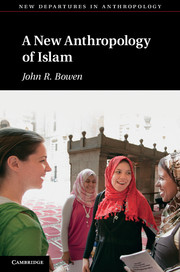Book contents
7 - Judging
Published online by Cambridge University Press: 05 December 2012
Summary
The first Islamic polity emerged when the Prophet Muhammad became ruler of the city of Medina. He transmitted God's words, resolved disputes among his followers, and responded to questions about all manner of concerns: how to worship, how to treat one's spouse, how to dress in public. Through his words and his deeds, Muhammad was the source of Islamic norms, the judge of human conduct, and the ultimate recourse for those with puzzles or problems.
The memory of this unity, in Muhammad, of ruling, judging, teaching, and worshipping, underlies the frequently expressed idea that Islam does not distinguish the religious from the secular. After Muhammad's death this unity began to come apart; some people ruled, others led prayers, still others collected and examined hadith, some taught, some judged disputes among the people, and some commanded armies. But the Prophet's example of how to do each of these things retained its stature as an authoritative model for correct Islamic conduct, and, as we have seen, the transmitted reports, hadith, of what he did and said remain one of the two main sources for knowing shariah.
- Type
- Chapter
- Information
- A New Anthropology of Islam , pp. 138 - 155Publisher: Cambridge University PressPrint publication year: 2012



